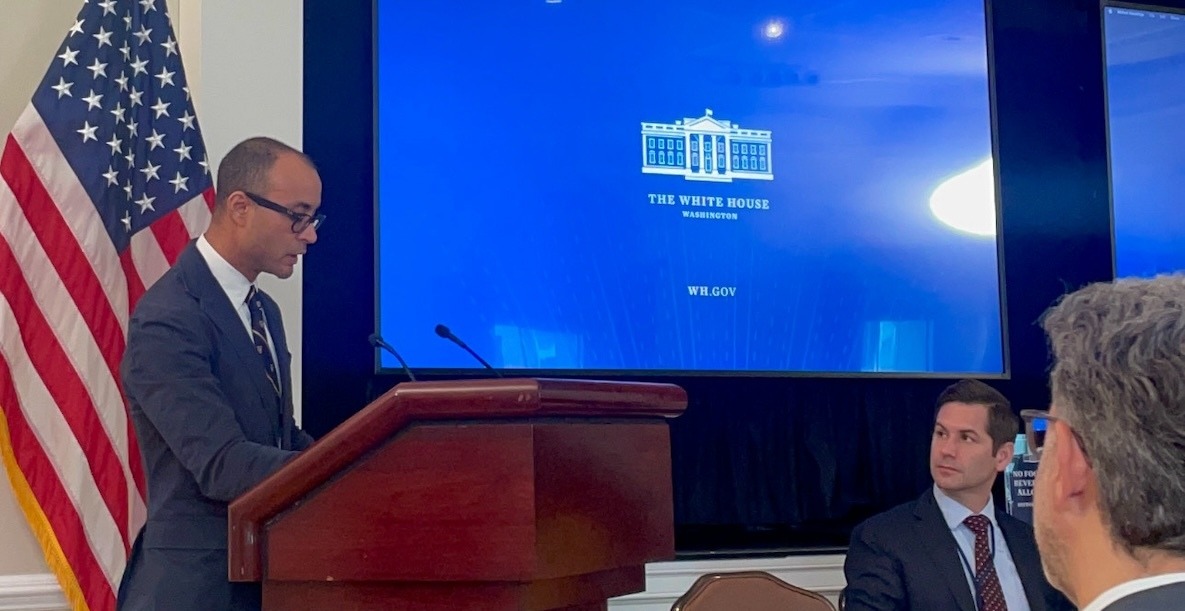In speeches on the Senate floor in the mid-90s, Senator Joe Biden touted his “tough-on-crime” credentials, praising Pres. Nixon’s “law and order” agenda and boasting that he had backed every crime bill since 1976. Those bills — including President Clinton’s 1994 crime bill, which Biden authored — helped construct the U.S. system of mass incarceration.
During his 2020 presidential campaign, Biden apologized for parts of the bills he pushed, and as president he supports the EQUAL Act, which would end the racially discriminatory sentencing disparity between crack and powder cocaine offenses. (Biden wrote this disparity into law in his Anti-Drug Abuse Act of 1986.) He has also allowed some elderly and at-risk people released during the Covid pandemic to remain at home.
But if he truly wants to alter his legacy and help those harmed by the cruel, racist system he helped build, he should aggressively use his clemency power in his final months as president.
So far, Biden has pardoned or granted clemency to only 11 people (compared to 237 by Trump and 1,927 by Obama.) To be fair, this number doesn’t include the thousands of pardons he gave to people convicted of marijuana possession. Still, unless he dramatically changes course, he’s squandering an opportunity to mitigate unnecessary, state-made suffering.
While relief for people imprisoned for nonviolent drug crimes is essential, that wouldn’t be enough to reverse mass incarceration. Most people in prison were convicted of violent crimes, and many are serving extreme sentences out of step with international norms. More than 200,000 people in the United States are serving life sentences and two-thirds are people of color. U.S prisons hold 40 percent of the world’s population serving life and 83 percent of those worldwide serving life without the possibility of parole (LWOP).
So far, Biden has pardoned or granted clemency to only 11 people. Unless he dramatically changes course, he’s squandering an opportunity to mitigate unnecessary, state-made suffering.
Pennsylvania, my home state, has the highest per capita rate of people serving LWOP, which I and other advocates call Death By Incarceration (DBI). One reason for this is that in Pennsylvania, felony murder carries a mandatory DBI sentence. Of the 1,100 people in Pennsylvania serving DBI sentences for felony murder, 70 percent are Black. In October, the Pennsylvania Supreme Court will hear a challenge to the constitutionality of LWOP for felony murder brought by Derek Lee, a 36-year-old Black man. Lee’s appeal has received support from a host of prosecutors, judges, victims’ families, and even Pennsylvania governor Josh Shapiro — a sign of mounting opposition to policies that force people to die in prison.
I myself was once serving a life sentence so I understand what it means both to contemplate death in prison and to be spared that fate. Last year, I traveled as part of a delegation – the Criminal Legal Working Group — to Geneva and testified before the U.N Human Rights Committee. I urged the committee to hold the United States in compliance with the norms and values it claims to champion but falls demonstratively short in upholding, especially for incarcerated people.
As a result of our delegation’s advocacy, the committee made a number of recommendations to the United States, including a moratorium on LWOP sentences and relief for people serving such sentences through various means, including clemency. This week, I traveled as part of the same delegation to the White House, to stress that President Biden has the power to act on one of the U.N. recommendations all by himself.
He has the opportunity to grant widespread clemency to people serving DBI sentences in federal custody. Recipients should include Leonard Peltier, the Native American activist convicted in an infamously unjust trial. While the number of people helped would be relatively small, the impact would reverberate in governors’ mansions and state legislatures across the country. Perhaps even here in Pennsylvania, where commutation for life sentenced prisoners has diminished significantly under Governor Josh Shapiro when compared to his predecessor. For President Biden, it may also represent a measure of redemption for a man who teamed up with former segregationists to build the modern carceral state.
Robert Saleem Holbrook is executive director of the Abolitionist Law Center in Philadelphia. Holbrook was The Citizen’s A. Leon Higginbotham Social Justice Champion of the Year in 2024.
The Citizen welcomes guest commentary from community members who represent that it is their own work and their own opinion based on true facts that they know firsthand.
![]() MORE ON CRIMINAL JUSTICE REFORM
MORE ON CRIMINAL JUSTICE REFORM




